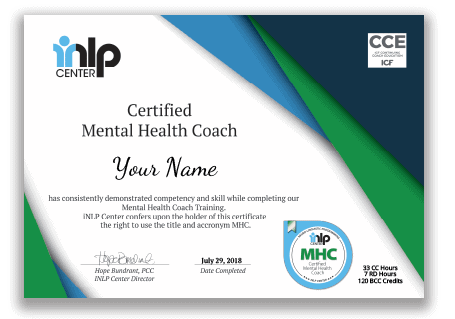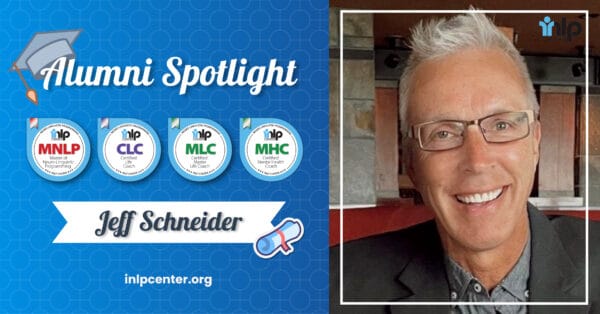What Is a Mental Health Coach?
A mental health coach is a type of life coach that specializes in non-clinical mental health issues.
The coaching ventures deeper than typical life coaching but stops short of diagnosing or treating mental illness.
Mental Health Coaching may sound vague (and it is). However, the differences become apparent with a few key concepts in mind and a worthwhile path forward will emerge.
Mental Health Coach vs Therapist: Similarities
Coaching and therapy (or mental health counseling) have more in common than not. Both coaches and counselors:
- Are paid as professionals
- Require training rooted in psychology
- Act as accountability partners
- Meet with clients regularly, usually for an hour at a time, with homework suggestions in between sessions
- Talk to people about goals, problems, and solutions
- Focus the effort exclusively on the client
- Ask probing questions and offer feedback
- Reference the past, present, and future
If you had to be a licensed counselor to do any of the above, you’d be in trouble. Talking to others about what they’re going through is one of the most common things people tend to do! Life coaches do this but so do mentors, consultants, supervisors, and even good friends.
You don’t have to be a counselor to talk to people about their problems!
Mental Health Coach vs Therapist: Differences

Legal Distinctions and Responsibilities
The one thing that sets the traditional mental health industry (counselors and psychiatrists) apart is the legally granted permission to diagnose and treat mental illness.
According to the mental health industry, the presence of a diagnosable mental health disorder indicates the presence of mental illness. Counselors rely on a particular reference book, The Diagnostics and Statistics Manual (DSM), to guide the diagnosis.
It is illegal for non-licensed professionals to declare that anyone is mentally ill or knowingly attempt to treat a mental illness. Don’t do it.
Common Misconceptions and Language Use
Some terminology used to label mental illness is too casually used, which can be confusing. For example, it’s common to hear people say things like:
- “I am so depressed! I never thought life would get this hard.”
- “My anxiety sometimes gets the best of me.”
- “I’ve had a fair amount of trauma in my life.”
These are relatively common expressions, and all of them use words associated with mental illness. Depression may indicate the presence of Major Depressive Disorder, considered a mental illness that affects over 7% of the population in the US. Anxiety may refer to Generalized Anxiety Disorder, also a mental illness listed in the DSM. And the same goes for trauma, with Posttraumatic Stress Disorder (PTSD) being the clinical disorder.
What escapes most of us is just how excessive and persistent the symptoms need to be before they are considered symptoms of a mental illness by the counseling industry. To be considered mentally ill, one’s symptoms must interfere with their ability to function.
Mental illnesses, also called mental health disorders, refer to a wide range of mental health conditions — disorders that affect your mood, thinking, and behavior. Examples of mental illness include depression, anxiety disorders, schizophrenia, eating disorders, and addictive behaviors.
Many people have mental health concerns from time to time. But a mental health concern becomes a mental illness when ongoing signs and symptoms cause frequent stress and affect your ability to function.
A mental illness can make you miserable and can cause problems in your daily life, such as at school or work, or in relationships.
Mayo Clinic
The Victoria State Government Department of Health in Australia reports the following:
Not all anxiety is a disorder.
Everyone experiences anxiety and fear at times – these are normal and helpful human emotions that help us deal with danger. However, some people experience excessive and irrational anxiety and worries that become ongoing and distressing, and that interfere with their daily lives. This may indicate an anxiety disorder. Often there appears to be no obvious or logical reason for the way the person feels. This may make an anxiety disorder even more worrying to the sufferer.
Department of Health & Human Services, n.d.
Finally, the Canadian Mental Health Association says:
Anxiety is a problem when it becomes overwhelming or unmanageable, and it comes up unexpectedly. Anxiety disorders are mental illnesses that have a significant impact on your life. People may avoid going about their daily lives to avoid anxiety.
Canadian Mental Health Association, BC Division
This suggests that so many casual discussions about depression and anxiety are naive to the clinical meaning of these words. And it is only the clinical expression of these words for which coaches must be concerned.
Clinical vs Non-Clinical Mental Health Issues
We could even boil down the issue to one of extremity: How extreme, or debilitating is the depression, anxiety, or trauma?
If the symptoms interfere with the client’s ability to perform the basic necessities of life, you should likely refer the client to a clinical counselor or doctor.
The non-clinical class of issues that mental health coaches work with looks similar to clinical concerns. Yet there is a simple way to tell the difference between a clinical and non-clinical concern.
There is a significant difference between:
- Anxiety (non-clinical) vs. Generalized Anxiety Disorder (clinical diagnosis)
- Depression (non-clinical) vs. Major Depressive Disorder (clinical diagnosis)
- A troubling memory vs. Post-traumatic Stress Disorder (clinical diagnosis)
- Thoughts and behaviors that are hard to control (non-clinical) vs. Obsessive Compulsive Disorder
- Food issues (non-clinical) vs. Eating Disorders
- The list goes on…
When you learn the difference between non-clinical vs. clinical mental health issues, you can coach with confidence, assured that you are not venturing into restricted waters.
Rest assured you will be taught to recognize the clear difference in our mental health coach certification.
What Does a Mental Health Coach Do?
Mental Health Coaching vs. Life Coaching
There may not be a significant difference between mental health coaches and life coaches to a clinician trained in traditional mental health. Neither is qualified to diagnose or treat mental illness legally. On the coaching side of the industry, the difference is one of methodology.
Mental health coaches are trained in more sophisticated methods of coaching. At the iNLP Center, we use parts psychology as the foundation of our mental health coach training.
Here’s an example of what mental health coaches do using parts psychology:
Jenna, a client of mine (name changed to protect privacy), said the following during a mental health coaching session:
I know I need to express myself and learn to stand up for myself. People will respect me more if I do, and I am tired of being taken for granted. Logically, I understand this! But it’s like a part of me won’t do it. It just freezes me, and I can’t get the words out. It’s like something constricts my throat, and I’m standing there just stuck. It’s even worse when I manage to get part of what I have to say out before I freeze.
A life coach may help you set a goal toward self-expression, break the goal down into manageable chunks, act as an accountability partner, and help you discover hidden strengths or a greater sense of purpose in what you’re doing.
But a mental health coach trained in parts psychology might also look at the part of the client that freezes at opportunities for self-expression.
Inner Communication and Self-Integration
We teach our students that inner communication is a two-way street (Interactive Mind principle). In this case, the potential two-way communication is between the conscious client and the part of the client that freezes.
This understanding matches the reported experience that:
- The client wants to express herself
- A part of the client does not want the client to express herself and freezes at every opportunity
In our scenario, Jenna is at odds with herself due to the compartmentalization of conflicting thoughts and feelings. Our minds do this! When experiencing such inner conflict, it’s impossible to commit 100% to anything. Thus, self-sabotage ensues, which can be incredibly frustrating. But, not mysterious when viewed with the principle of compartmentalization in mind.
What do you do when two committed people are in conflict? Communicate! And the same goes for our inner life.
Of course, our minds communicate with us through thoughts and feelings all day long. But, typically, we take the helpful thoughts and feelings for granted and condemn the unhelpful ones, even though many thoughts and feelings come from parts of you that hold a positive intention and are beyond committed to your well-being.
We are not taught how to communicate with ourselves, even though parts of ourselves communicate with us all day long.
If we could sum up what mental health coaches do in a nutshell, we’d say they facilitate inner communication to promote self-integration and healing. Along the way, outer communication (with others) increasingly comes from an authentic, aligned place.
Outcomes of Effective Mental Health Coaching
Of course, inner communication consists of more than words but includes an entire range of imagery, sound (including self-talk), and feelings. In the freezing part example above, the part in question housed a feeling – probably a cold, tight feeling in the torso with a clear message: Do not speak up! Keep quiet or else!
Caught up in such a feeling, we might miss the fact that this part of you – this little pocket of adversity in your psyche – was able to enter your consciousness at just the right time and impose its will upon you. Even though you want to speak up, you can’t because the words won’t come out. This adversity is a powerful part of your mind.
The freezing part is just one example. Imagine being up for a promotion at work. As you engage in the process of applying and interviewing, a nagging voice in your head tells you that you’re going to fail miserably and make a fool out of yourself. You might consider this inner voice non-sensical and try to dismiss it. After all, you are qualified and competent to do the job. Yet, as the interview approaches, this part of you escalates, and so does your irrational anxiety.
These compartmentalized thoughts and feelings are influential whether or not we approve of them. Disapproving of them often makes matters worse. Not very different from a disgruntled person, a disgruntled part does not take well to being systematically ignored. But, unlike most people, our parts never give up. As long as we are avoiding them, they keep coming back.
Mental health coaching teaches us to listen and talk to all parts of ourselves, helping us feel better and act more like the person we want to be.
Become a Mental Health Coach – Start Today!
If you are interested in training to become a mental health coach consider the iNLP Center’s Mental Health Certification Track. This track provides 225 coach training hours, is ICF accredited for the PCC credential, and includes five professional certifications. And, includes lifetime training!
You Might Also Like
What is a Neurodiversity Coach?
A neurodiversity coach is a professional who specializes in supporting individuals who are neurodivergent. Neurodiversity is the concept that variations in human brain function and behavior are natural and normal, rather than disorders. This includes conditions such as ADHD, Autism Spectrum Disorder (ASD), dyslexia, dyspraxia, Tourette Syndrome, and other neurodevelopmental differences. The core purpose of…
Adult ADHD: Realities Every Coach Needs to Know
Adult ADHD is a complex and often misunderstood condition. As coaches, it’s crucial to separate fact from fiction to effectively support neurodivergent clients. Misconceptions can lead to ineffective coaching strategies and even harm the client-coach relationship. Let’s debunk some common myths and explore the realities of adult ADHD. Myth 1: ADHD is a Childhood Disorder…
Continue Reading Adult ADHD: Realities Every Coach Needs to Know
Coaching Dyslexia: From Struggle, to Strength
“Dyslexia” – a word often associated with frustration and academic struggles. But what if we shifted the narrative? What if we viewed dyslexia not as a deficit, but as a unique cognitive landscape brimming with untapped potential? That’s where the transformative power of coaching dyslexia comes into play. It’s about empowering individuals to navigate their…
Continue Reading Coaching Dyslexia: From Struggle, to Strength
The Expert’s Guide: Becoming a Certified ADHD Coach
ADHD, or Attention-Deficit/Hyperactivity Disorder, affects millions worldwide, presenting unique challenges in areas like focus, organization, and emotional regulation. This has created a growing demand for specialized support, making ADHD coaching a rewarding and impactful career path. If you’re passionate about helping individuals with ADHD thrive, becoming an ADHD coach might be your calling. Understanding ADHD:…
Continue Reading The Expert’s Guide: Becoming a Certified ADHD Coach
Neurodiversity Coaching: Strategies for Success
Coaching individuals with neurodiversity demands a nuanced and adaptable approach, one that acknowledges and celebrates the unique cognitive landscapes of each client. Neurodivergents encompassing conditions like ADHD, Autism Spectrum Disorder (ASD), and dyslexia, present a spectrum of strengths and challenges that necessitate personalized strategies if you are looking to become a Neurodivergent coach. If you…
Continue Reading Neurodiversity Coaching: Strategies for Success
Alumni Spotlight Jeff Schneider
Jeff Schneider, a seasoned coach and graduate of the iNLP Center, dedicates his practice to empowering individuals across diverse professional landscapes. His expertise spans a spectrum of clientele, including high-achieving salespeople, influential executives, and fellow coaches navigating the complexities of building thriving businesses. Driven by a deep-seated desire to empower others, Jeff is currently penning…









